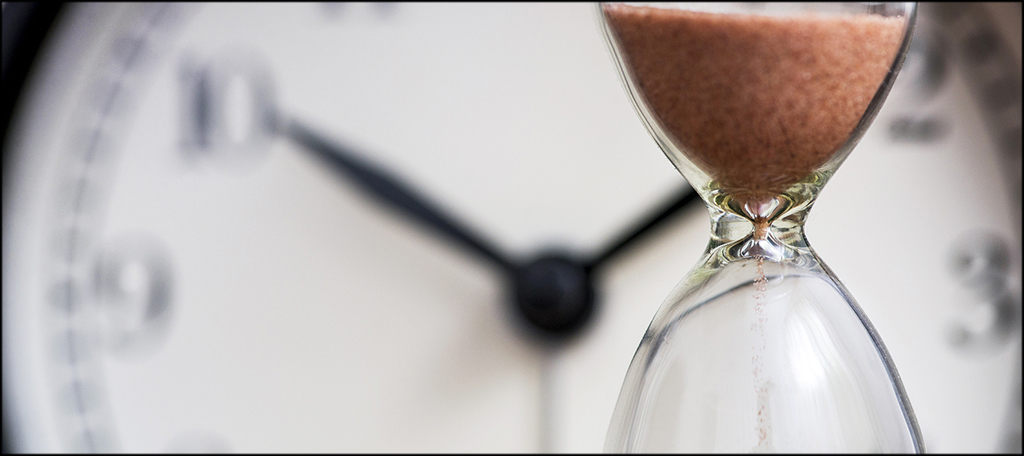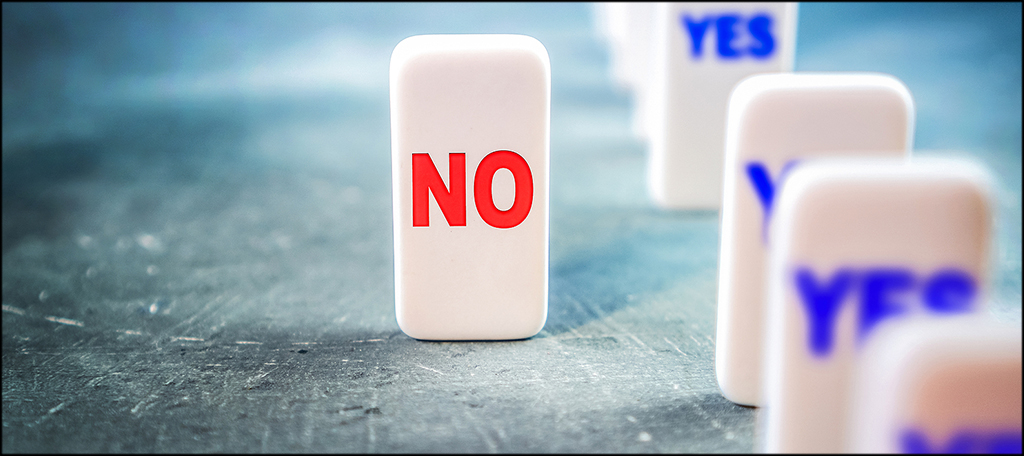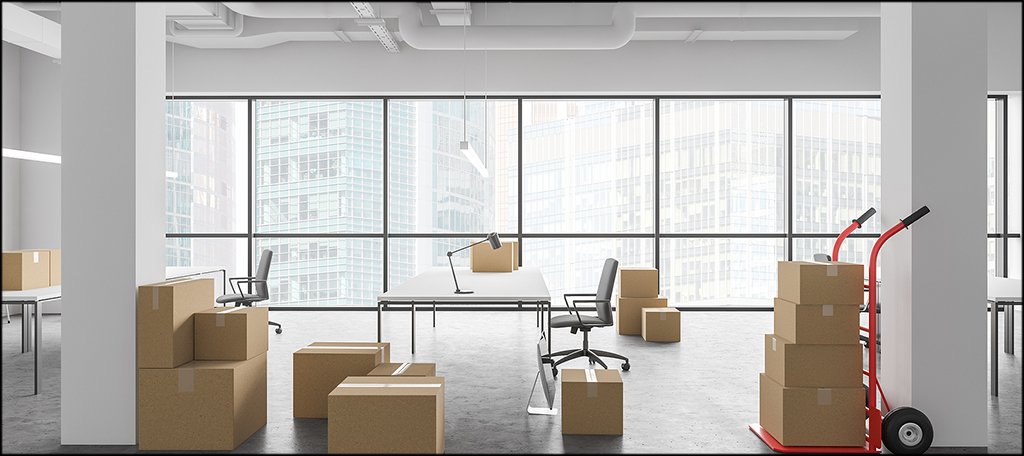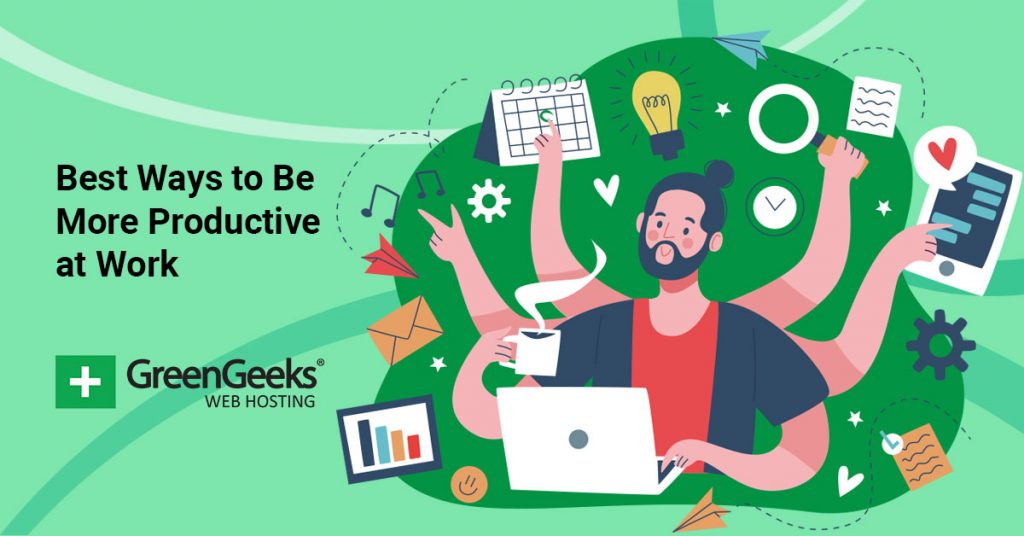Everyone who runs a small business can benefit from finding ways to be more productive. But you don’t have to be a small business owner to gain from learning new productivity methods.
We can all find new ways to be more productive and efficient in our everyday lives. But there are proven ways to make essential business tasks more efficient.
The first step to increasing productivity is identifying problem areas. When we sit down (or approach our standing desk) to work every day, what are some of the common obstacles? What can we do to minimize them?
For most of us, there are only a few things we have to strive for:
- Staying focused on important tasks or projects
- Dealing with interruptions
- Maintaining motivation
- Avoiding procrastination
When we take care of those things, most everything else will fall into place.
Let’s talk about some ways we can address the everyday stumbling blocks to stay on track and be more productive. Here are 27 positive actions that most of us can take today.
No one can implement all of these tips at once, of course. Identify which ones resonate with you and start there.
How to Be More Productive at Work

1. Prioritize Your “Essential Results” Daily
Many of the items in this list revolve around priorities and making decisions about what’s important. But in reality, some tasks must be completed on a given date, or even daily. Consider those tasks “essential results,” of your day’s work and keep a list of them at hand.
Make sure you budget time in your day to complete them.
Some of the other tips here will help you with that time budgeting. But if you hit your essential results every day, much of the stress that surrounds busy people will disappear.
2. Remember Long-Term Priorities
Prioritizing necessary daily results should go hand in hand with keeping long-term priorities simmering on a back-burner. Ask yourself which of your daily, short-term goals contribute to your long-term priorities.
If the answer seems to be ‘none,’ don’t worry. Ask yourself if or how you can leverage some of your short-term tasks to contribute to your long-term goals.
You might find that some of your day-to-day work stands in the way of your long-term goals. If that’s the case, re-evaluate what you’re doing short term and adapt it to fit with your long-term priorities.
Consider rejecting anything that can’t be made to fit.
It’s easy for busy people to lose sight of their long-term goals. If you find that happening to you, don’t panic. Step back and recalibrate to get yourself back on track.
3. Reduce or Consolidate Meetings
Meetings are the number one time thief in many businesses. More than 70% of senior managers across a range of industries classified meetings as “unproductive and inefficient.” A similar number say that meetings prevent them from completing their own work.
So far from making them more productive, meetings make them less productive.
If you find yourself in a lot of meetings, it might be time to bow out of some of them. It’s tempting to want to sit in on every meeting to be informed. But if most meetings are a waste of time, what are you really missing?
Some meetings are necessary, of course. But if you take a look at the content and the participants, you may find that some can be consolidated. If you can’t eliminate or consolidate meetings, try to schedule them back-to-back or in clusters.
That has two benefits. First, it reduces the number of interruptions caused during a given day by meetings. Second, it can effectively shorten some meetings by limiting the time slots.
4. Be More Productive with the Two Minute Rule

Author David Allen popularized this method in his book, Getting Things Done. It’s one of the simplest ideas in this list, yet it’s also the one with the most profound potential impact. Here it is:
If a task presents itself to you that would take less than two minutes to complete, do it immediately.
That’s it.
Like a lot of great ideas, it seems obvious. But if you put it into practice, it can have a wide-reaching impact. An impact beyond making you more productive. I hesitate to call anything life-changing, but if you’re a procrastinator, the two-minute rule can change your life.
Skeptical? Try it for a day. That’s all it will take to convince you of its genius.
5. Track (and Limit) the Time You Spend on Tasks
There’s an idea called the Pareto Principle (AKA, the 80/20 rule). It says that 80% of your results will come from 20% of your efforts. If that sounds familiar or you think it applies to you, identify the fruitful 20% of your effort.
Put your finger on what you’re doing right in that 20% to make yourself more productive. Then ask yourself how you can maximize it. Then, think about how you can reduce the other 80% of effort that isn’t contributing to results.
6. Rule Email, Don’t Let It Rule You
We talked about meetings being potential time-wasters. But email may be worse. If you find yourself drowning in email, here are some ideas that can help you get to shore.
- Don’t open your email client more than twice a day. Once in the morning, and once in the afternoon. Set a time limit for each session and stick to it. This may be the most challenging change to make. But if you dedicate yourself to being efficient when handling email, you should be able to do it.
- Ask yourself if an email message requires a response from you. When you start approaching email in that way, you might find that most of it does not.
- Look at where your email address appears on the recipient’s list. If you’ve been CC’d, it’s less likely that a response from you is necessary.
- Send any email that doesn’t require a response to a temporary archive folder. Set the archive folder to delete contents over 30 days old.
- Create a permanent archive folder for email that you may have to reference beyond your 30-day archive. Don’t move anything to that folder that requires a response.
7. Improve Your Written Communication
While we’re on the subject of email, you can reduce a large chunk of incoming mail by improving your writing. I don’t mean in a literary sense but in an informational sense.
Take time to re-read what you’ve written. That simple step will save you a lot of unnecessary responses. Does your email say everything you want it to say? Are there any typos? Make sure nothing is open to interpretation or might otherwise create questions.
If you’re asking questions or requesting input, be very specific about what you’re asking for.
8. Eliminate Unnecessary Decisions to Be More Productive

Albert Einstein wore essentially the same clothes every day. And he isn’t alone. Asked why his clothes were all the same, Einstein said it eliminated the decision of what to wear every morning.
That concept can be expanded to many of the decisions we have to make. Ask yourself if a decision is important, and if it isn’t, don’t dwell on it. Either automate it, like Einstein’s suits, or make it quickly without overthinking.
Decisiveness is a time-saver.
9. Let Go of the Myth of Multitasking
A lot of people maintain that we can multitask. They’ll use examples like young people studying while listening to music. But that isn’t multitasking. They aren’t concentrating on the music; it’s just there while they focus on their studies (if their parents are lucky).
The fact is, we are incapable of what is commonly thought of as multitasking. Our brains don’t work that way. When we believe we’re multitasking, we’re actually rapidly switching back and forth between tasks.
If that doesn’t sound like an excellent way to be more productive, that’s because it isn’t.
If you schedule your tasks in a way that incorporates multitasking, stop. At least try to complete tasks without layering them on top of each other. You may find that you can complete your tasks more quickly (and with fewer errors) when you attack them separately.
10. Clear a Path Every Day for Deep Work
Think of it as anti-multitasking.
Most of us have some projects or tasks that require intense focus. When we’re interrupted or distracted from that focus, it can take from 20 to 30 minutes to regain it.
Think about that. It means two interruptions can virtually double the time needed to complete a task requiring an hour of deep concentration. That suggests we need to set aside a block of uninterrupted time for projects or tasks that require deep focus. Aim for at least 90 minutes (more on that number in a minute).
11. Be More Productive by Using Shortcuts
I don’t mean to shortchange your work, but to make repetitive tasks easier and quicker.
I have a checklist that I run through whenever I finish recording and editing a podcast. There are a couple of dozen tasks on the list that have to be done for every episode.
None of the tasks are particularly fun or exciting. But I can work my way through the checklist and complete the tasks in less than an hour. Without the checklist, two things would happen: I’d forget to do something, and completing everything would take twice as long.
The checklist approach can be applied to most repetitive tasks. Checklists, spreadsheets, and formula lists, can all be used to streamline less-than-interesting tasks.
12. Just Say No

In the meetings section, I mentioned that it could be tempting to attend meetings in an effort to be informed. Once you break yourself of that habit (if you can), give yourself permission to decline other time-wasting activities.
Those activities can be meetings, tasks that can be delegated, and random chats that aren’t related to work. It can also mean saying ‘no’ to yourself. Tempted to click over to Instagram “for a minute”? Don’t do it.
Stay focused on the plan for the day, and politely remove yourself from distracting situations and people. It may be one of the most challenging ways for many of us to become more productive, but it’s in our interest to give it a try.
13. Make Note of Distractions to Be More Productive
I realize that “just say no” isn’t always an option. But whenever possible, put off distractions by noting them in a list. Jot down thoughts that creep in, like, “I can’t forget to stop at the grocery store.” Or “I want to dig deeper into that website.”
At the end of the day, check your list. Anything that needs to be done can be scheduled. You might also find the two-minute rule can conquer a lot of distractions.
14. Take a Hard Look at Your To-Do-List
Yes, we’re still sort of lingering in “just say no” territory. But even the most organized and efficient people can find themselves creating unrealistic to-do lists.
Review your lists often, and don’t be afraid to eliminate items that aren’t a good use of your time. Delegate where possible, and eliminate without mercy or remorse.
15. Take a Break to Be More Productive?
Breaks from physical work are expected and encouraged. But often, breaks from the desk or computer work are not. But they should be. Taking a break can increase your productivity.
A break is not an interruption. It’s normal to continue mentally ruminating on a task or problem while taking a break. In fact, you might notice that a lot of problems find their solutions during breaks.
Breaks are also beneficial to your physical and mental well-being. They don’t have to be long to be effective. A trip to the refrigerator or water cooler is a break, even if it only lasts a minute.
Sometimes stopping work is the key to work efficiency and being more productive over the long term.
16. Don’t Wait for Inspiration or Motivation

If you’re a creative type, as many of us are, you can get stuck on a task waiting for inspiration. It’s not procrastination, per se, but it’s a close cousin. In a minute, I’ll talk about breaking large tasks into smaller tasks, but for now, let’s talk about just starting.
The key to getting most things done, especially large or essential tasks, is just starting. I had no idea which direction this particular article was going to take. But I had the title, so I just started typing. Within a few minutes, the structure fell into place.
Once you have the structure, it’s just a matter of filling in the blanks.
Okay, we all know it’s more than just filling in blanks, but you get the idea. The act of beginning frees us from over-planning or lack of motivation. It triggers creative sparks. Action begets more action, so when you’re stuck, just start.
You may throw away the first five minutes of work, but you’ll be making progress.
17. Learn From Mistakes
The best-laid plans can go down the drain quickly. We’ve all been there, and we’ve all felt the sting of something not going according to plan. What separates successful people from others is the ability to learn from mistakes (and hopefully not repeat them).
When faced with failure, we can learn and make better attempts next time.
Think about what your goals were. Analyze the differences between what you expected and what actually happened. Use those differences to make your next attempt more successful.
18. Be More Productive While Working in Batches
Many productive people break their workdays into 90-minute increments. Why 90 minutes? It’s biological—your ultradian rhythm.
The science is solid, but it’s also common sense and logical, building on other concepts we’ve talked about. And as a bonus, four 90-minute blocks fit handily into the typical workday.
You can fit a lot into 90 minutes, and it’s a reasonable amount of time for completing deep work.
19. Break Large Tasks Into Small Tasks
A common problem with large tasks or projects is not knowing where to start—feeling overwhelmed by the scope of the project. Some things don’t lend themselves to the “just start” idea.
The best way to be more productive when faced with those kinds of projects is to break them up into manageable chunks.
It’s similar to an outline that you might use for writing. Think about how a large project can logically be split into smaller tasks. Then map out the steps needed to complete each smaller task.
If you can do that, the result is a large task with a reasonable roadmap. That reasonable roadmap has a psychological effect, turning the mountain into several easily navigated molehills.
20. Organize, Organize, Organize

One of the most damaging things where productivity is concerned is disorganization. As you may have noticed, many of the things we’re talking about here require a certain level of organization.
It’s challenging to adopt tools or make systematic changes when you’re unorganized.
Different jobs or tasks benefit from different kinds of organizations. Some can benefit from calendar or organizational software. Others from the more physical organization.
But generally speaking, some organizational tactics can help many of us.
- Organize your desk. If you can’t find what you’re looking for, you’re wasting time.
- Organize your computer. It has a desktop too, right? Finding something specific on the typical computer is much more time-consuming than finding something on a physical desktop.
- Manage your email. Can you boil it down to three folders? Yes, you can!
- Watch the clock. It goes without saying, but I’ll say it anyway. None of the time-focused tips here will be useful if you don’t pay attention to time.
21. Use Your Commute to Be More Productive
All commutes are not equal, so not everyone can use their commuting time to be more productive. If you work in Manhattan, odds are you’re not driving yourself to work. If you’re in Los Angeles, it’s more likely that you’re in the driver’s seat.
In this case, it’s probably best to focus all of your attention on driving. For everyone’s sake.
But even if you are driving, you may be able to use your commute time productively. Is there a work-related book you’d like to (or have to) read? See if an audio version is available.
Along the same lines, many podcasts could be beneficial to the work you do. Check them out and absorb them while you drive (or idle on a Los Angeles freeway).
If you commute on mass transit, you have that time to work on projects or organize your day. You probably won’t get any deep focus work done on a bus or train. But, you may be able to check some less intense busy work off your list.
22. Know Yourself and Your Habits
While all of the tips on this list are actionable, they won’t all be of use to everyone. Maybe you know you must spend an hour a day on email. Or that there are specific meetings that are unavoidable.
Don’t cause yourself unnecessary stress by trying to eliminate the things that can’t be eliminated. There are plenty of things you can do to reclaim some of your time and be more productive.
Focus on what you can do now to be more productive.
23. Tackle the Important Stuff First
We all want to start our days by doing the things we think are most important. Checking our phones right away, answering emails out of the gate, and other tasks like this can probably be pushed.
Focus on the most important stuff first. Wait a few hours to tackle your inbox while you use your morning energy on a task that is more important.
24. Stop Even if You Are On a Roll

Yes, you read that last tip correctly. If you get rolling on a task and know exactly what needs to happen next, then that is a good place to stop. You have a clear path going forward, you stay fresh, and you have taken care of plenty of the task already.
You can then sit down and start even more refreshed the next day.
25. Eat Properly to Be More Productive
Not everyone considers how food can influence energy levels throughout the day. And having the bad kind of carbs and calories can leave you feeling lethargic and sluggish after a while.
While some foods are great for keeping you sustained throughout the day, some foods can actually drain your energy. This means you’ll be less likely to continue at a strong pace while at work.
It’s worth the time and effort to plan your meals accordingly to provide a steady level of energy throughout the day.
26. Exercise to Improve Your Mental State
Similarly to eating healthy, exercising on a regular basis can improve your mental health and emotional state. Taking care of your body is one of the best ways to be productive because when you are feeling good, you can get things done.
The good news is that it doesn’t take much time out of your day. Just 30 minutes of exercise can lead to you being more efficient at work. And you don’t even need to go to a gym, walking around your neighborhood is one of the best exercises.
You won’t get any work done if you are distracted, so improve your mental well-being with some simple exercise.
27. Give Yourself Something to Look Forward To
One of the best ways to be more productive is to give yourself something to look forward to. This is something many parents do with their children. For instance, if you do your homework, you can eat a snack.
It’s very simple, but when humans have something to look forward to, they tend to figure out how to be more efficient to obtain that reward or do that activity faster. And honestly, rewarding yourself with a snack is still a great choice.
Sometimes, it really is the simplest thing that can make a person productive.
Being More Productive Is Personal
We’re all individuals, each with our own ways of handling our responsibilities. As tip #22 says, know yourself and your habits. I’m sure many of you reading this thought, “Well, that’s a good idea, but I’d do it like this…” That’s perfect.
Often all we need is a nudge or suggestion to get us moving in the right direction toward being more productive.
Even if you can’t implement any of these particular productivity tips, perhaps a few of them sparked ideas. Inspired some thoughts on methods that you can apply. If so, we’ve been successful.
Productivity has positive benefits beyond its impact on our jobs or businesses. Increasing productivity often reduces stress and frees up time. Both of which make our lives better.
And that’s always a goal worth working toward.

